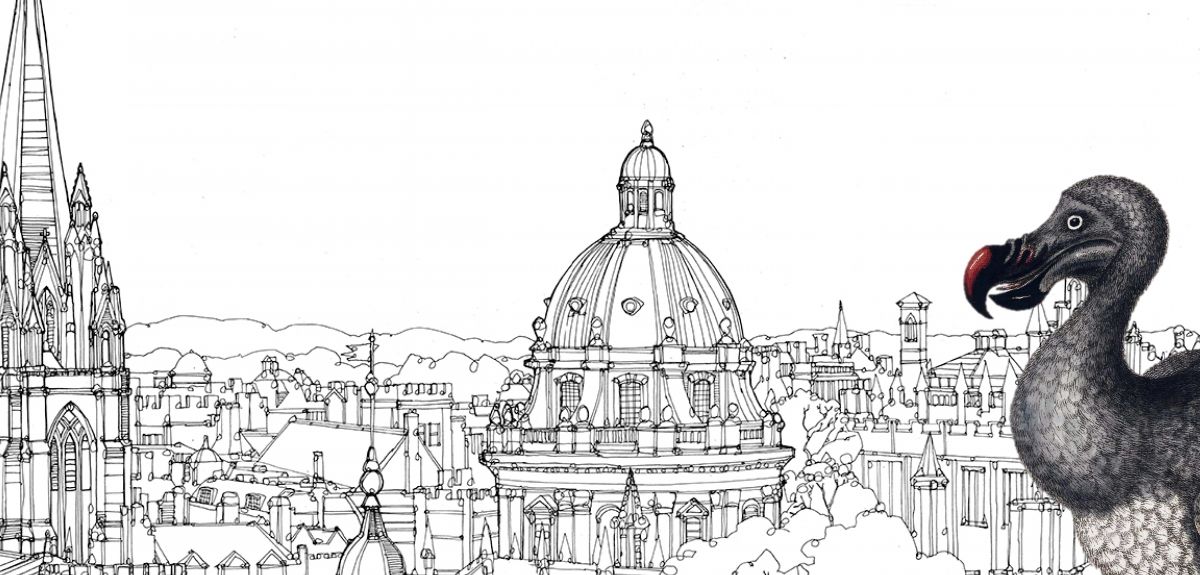
Why do we still talk about the dodo?
Countless animals have gone extinct over the years but the dodo is one of only a few to be remembered. A special day of events at Oxford University will investigate why this bird has remained so popular.
'The Oxford Dodo: Culture at the Crossroads' will be held on 18 November 2015 to celebrate the life and legacy of the dodo.
There will be a panel discussion of the dodo’s significance at 5.30pm in the Oxford University Museum of Natural History, which is home to the world’s only preserved soft tissue dodo remains.
The panellists are from very different fields and will explore the dodo from a range of perspectives. They include Paul Smith (Director, Museum of Natural History), Pietro Corsi (historian of science), Jasper Fforde (children’s author), Paul Jepson (environmental researcher) & Kirsten Shepherd-Barr (literary scholar).
On the day, Oxford's Story Museum will host a children's workshop led by author Jasper Fforde, who will show how you can bring extinct animals to life through creative writing.
The University has also launched a writing competition, in collaboration with Blackwell’s, for 7 to 14 year olds, who will bring the dodo back to life through short stories and poetry.
The University has been awarded funding to hold the event as part of Being Human 2015, the UK's only national festival of the humanities. The event is organised by TORCH and the Museum of Natural History in Oxford and has been made possible by a grant from the festival organisers, the School of Advanced Study, University of London.
Kirsten Shepherd-Barr, Oxford's Humanities Knowledge Exchange Champion and an English professor, said: 'The dodo: an icon of extinction, and a powerful symbol of humanity's impact on the environment. It crosses disciplinary lines, encompassing literature, science, the arts, geography.
'It haunts our imagination, from Lewis Carroll's Alice in Wonderland to David Quammen's The Song of the Dodo to the Natural History Museum's very own exhibit on this extraordinary and elusive creative. What did it sound like? How did it really look? Why are we left to reconstruct, from a few bones, this creature that seems so real and touches us so immediately?'
Paul Smith, Director of the Museum of Natural History, said: 'Collaborating with Oxford Humanities researchers and sharing Dodo stories with the public is an excellent way to celebrate the power of museum objects and their ability to cross cultures, in this case the world’s only preserved soft tissue remains of the Dodo.'
Stephen Tuck, TORCH Director and Professor of Modern History, University of Oxford said: 'The dodo is such a symbolic character for so many fields, and this event is a great opportunity to bring those conversations together - and where better, than at the Museum of Natural History in Oxford?'
The event is free and open to the public, but booking is recommended. A ‘pop-up crèche’ for children up to 12 years old will be provided. Visit the TORCH website for more information.